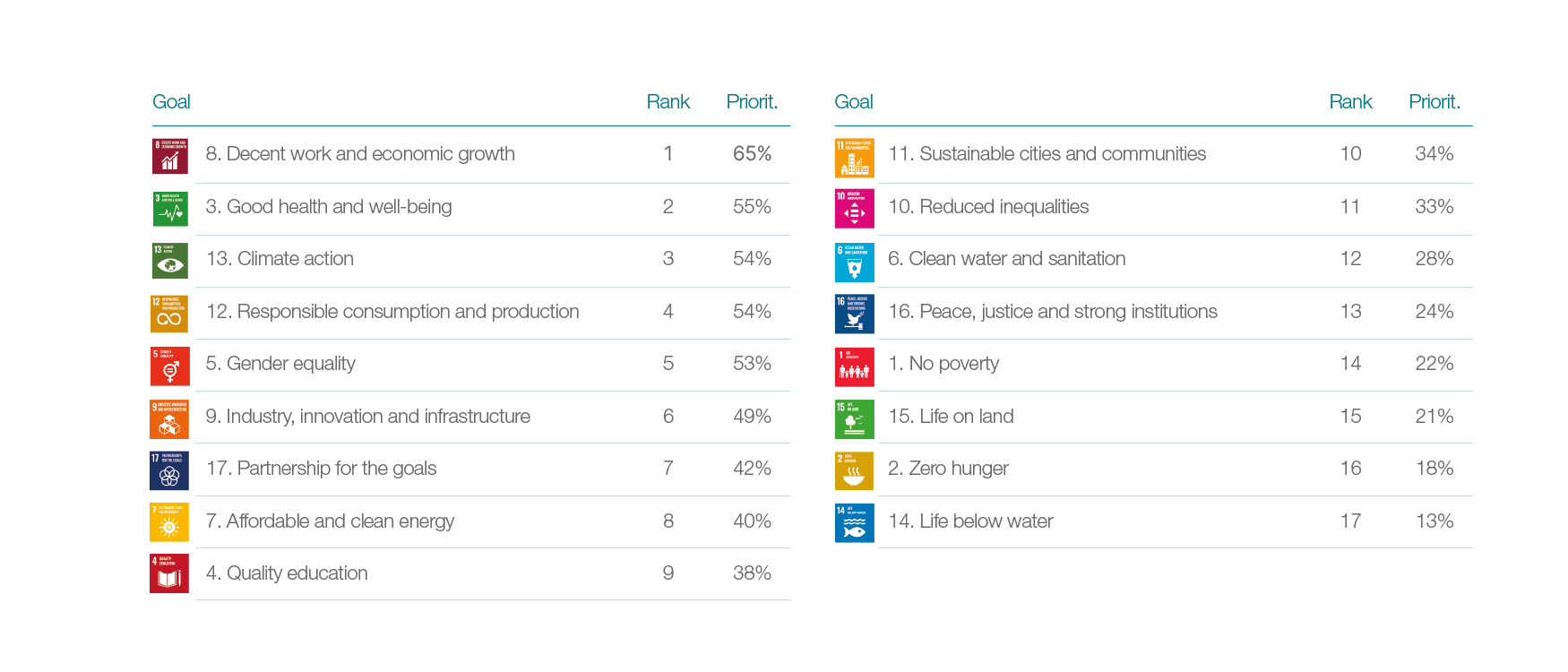Skretting and the United Nations Sustainable Development Goals
In 2015, the United Nations introduced a set of 17 Sustainable Development Goals (SDGs) to end poverty, protect the planet, and ensure prosperity for all as part of a new sustainable development agenda. Each goal has specific targets to be achieved by 2030. For the goals to be reached, everyone has a part to play: governments, the private sector, civil society and engaged people like the readers of this report. As the prime connection between people and the planet, sustainable food systems don’t just help to end hunger. Moreover, the challenges that we face are a crucial aspect of the broader challenges faced by the planet and, in some ways more direct than in others, the food industry has the possibility to make an impact to achieve critical progress on all 17 SDGs.
The impact of companies on the Sustainable Development Goals

According to the OECD, food security is linked to SDG2 (zero hunger) and SDG3 (good health and well-being). Livelihoods and rural development are reflected in SDG1 (no poverty), SDG6 (decent work and economic growth), and SDG10 (reduced inequalities). Sustainable resource use and climate change mitigation are contained within SDG12 (responsible consumption and production), SDG13 (climate action), SDG14 (life below water) and SDG15 (life on land). Other SDGs will also be important to the fulfillment of challenges facing the food system, including those related to education, institutions and gender equality.
Although important progress has been made through close collaboration between the public and private sectors, the United Nations Global Compact reports that the SDGs are not yet deeply enough integrated into the corporate purpose, governance and strategy of the majority of businesses and therefore, with only ten years left to reach the Sustainable Development Goals, we need to accelerate from decades of ambition to a ‘Decade of Action’ where companies should take a look at where we’re falling short and set industry-specific goals, standards and execution plans. Even though 84% of companies engaged in the initiative are taking action to advance the SDGs, only 29% of businesses feel that their industry is moving fast enough to deliver SDGs by 2030.
When companies prioritise the SDGs, there appears to be a correlation between the priority a company applies and the level of action they take.
When companies prioritise the SDGs, there appears to be a correlation between the priority a company applies and the level of action they take. However, the number of companies prioritising certain SDGs remains low. This includes those related to poverty and living standards — Goal 1: No Poverty, Goal 2: Zero Hunger, and Goal 6: Clean Water and Sanitation — and relating to environmental impacts — Goal 14: Life On Land and Goal 15: Life Below Water.
In many areas, our sustainability programme is closely aligned with the SDGs. However, due to our purpose of ‘Feeding the Future’ and our position in the seafood industry, we have the opportunity and responsibility to make a significant contribution to the achievement of two of the least prioritised goals by companies today: zero hunger and life below water.
Throughout this report, we will highlight our contributions to meeting the SDGs.
